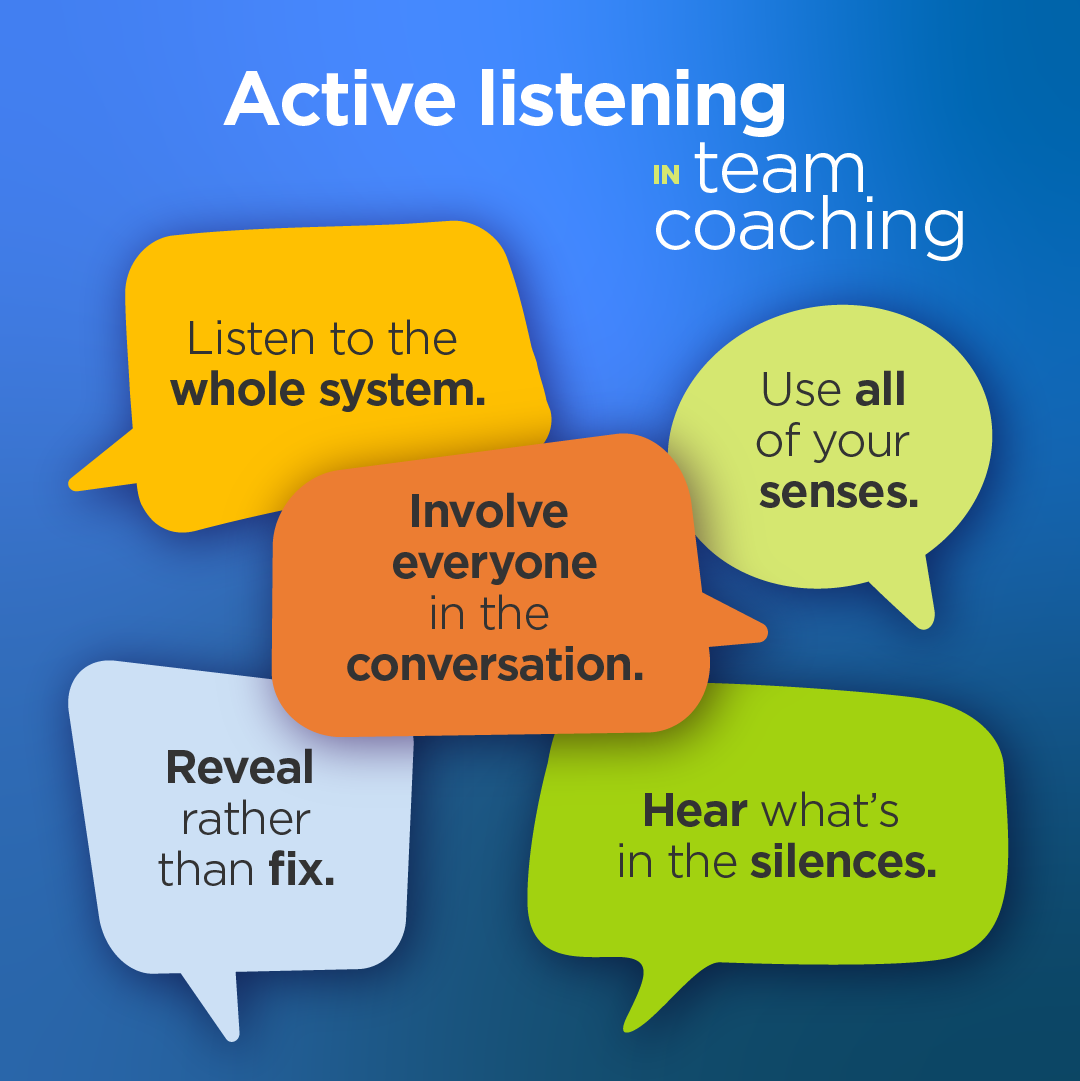|
READING TIME: under 4 minutes In coaching and leadership, active listening is a key skill that‘s so much more than just hearing what is said. As relationship systems workers, we are watching the full complexity of what’s happening within a team. We become sleuths - gathering information and noticing all of the signals that the system is sending. We listen to the words that are spoken, catch the subtext, and see, sense and intuit what’s going on below the surface. While coaches use active listening to work with both individuals and systems, listening to a system or team is slightly different. These hints about listening to teams were drawn from a May 2023 conversation in our Organization and Relationship Systems Coaching (ORSC™) community. 1 - In team coaching we listen to the whole system, not just individuals. Relationship systems coaches and leaders work with what CRR Global calls the Third Entity™ - the network of connection within a group. In listening to the system, we pay as much or more attention what’s happening across the team as to what an individual is saying or doing. One coach described it as placing the hard focus on the team, and a softer focus on the voices of individuals. The system gives us information on how it can survive and thrive. Coaching systems involves all of the senses. Use your whole body to hear, see and sense what is happening, and stay fully present in the moment. Signals can emerge from what we observe in team members, the energy we feel in the room, and what we notice within ourselves. As you coach or lead, pay attention to what's happening in your own body. What do the tightness in your shoulders or the tingle in your gut tell you? Active listening as a team coach means to make the system aware, rather than fixing issues. To actively listen, we turn off judgement. This type of listening isn't about being right or telling others what to do. Instead, we are paying exquisite attention at every level. Systems coaches and leaders serve as mirrors. We reflect what we observe so the system becomes more aware. In asking thoughtful questions and uncovering what is not being spoken, we encourage the team to see itself more clearly. Silences are just as important as sound. In coaching the system, we pay attention to what lies between the words. Is there tension or agreement in the shared space? Notice the shifts in emotion and energy across the team, and observe the interplay of relationship during these silences. To use a musical metaphor, it's important to hear the spaces between the notes. We can stretch our hearing to capture what’s being said in whispers, and what is being expressed through silence. Every voice in the system gives us important information. Part of our role is to draw out the quiet voices, so that we hear what has been hidden as well as what is obvious. This can be done in a coaching conversation, or leaders may use information drawn from audits, program evaluations, labour negotiations and surveys to gain a better understanding. Coaching tools like amplification can make understated messages even more obvious. How do coach credentialing bodies define active listening?
Remember that every interaction offers a chance to build the muscle of active listening. Make a habit of actively listening - whether it’s within yourself, in your personal relationships, with team members, or as a leaders or coaches. With time and practice, this skill will become second nature. Thanks to Lauren Powers, the Next Great Chapter co-hosts Alonso Rios and Kat Hay, and our community members for the wisdom in their conversation which inspired this post. If you’d like to hear the discussion, the replay is available here. Learn about Organization and Relationship Systems Coaching (ORSC™). AuthorCRR Global staff
0 Comments
Leave a Reply. |
Archives
September 2023
Categories
All
Get notified when new articles are available. |
Quick Links |
Find Something |
Stay Connected |
©
2021








 RSS Feed
RSS Feed